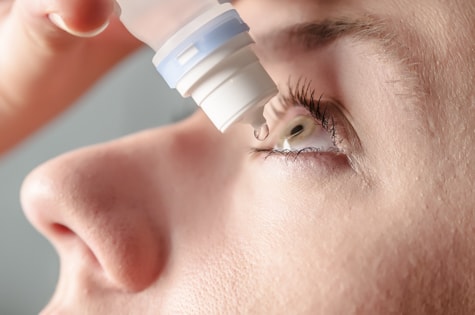What is an Epiretinal Membrane?
An epiretinal membrane is a thin layer of scar tissue that develops on the surface of the eye’s light-sensitive tissue called the retina. These membranes, which often develop after a vitreous separation related to aging, are very common and often do not cause any problems. In fact, most patients who have an epiretinal membrane never have any vision problems and do not require any treatment.
In some eyes the membrane can pull on the retina and wrinkle the center part of the retina called the macula. The traction on the retina can cause swelling and distortion of the retina leading to blurred or distorted central vision. This is often called macular puckering. If the membrane pulls on the retina for a long time, permanent damage to the vision can occur. Many people do not recognize they have an epiretinal membrane until it is discovered by their eye doctor during examination. In almost all cases there is nothing that you did to cause the epiretinal membrane, or nothing that could have been done to prevent it from occurring.
Watch our video that explains what a macular pucker, or epiretinal membrane, is and what you can expect!
Symptoms of Epiretinal Membrane
Many patients with epiretinal membrane have no symptoms and will never have any problems. Patients with more severe retina traction may experience blurred or distorted vision. Patients often describe the vision associated with this as wrinkled or wavy. Symptoms often worsen gradually over time and many patients are not aware of any day to day worsening, particularly if the other eye is normal. Epiretinal membranes can interfere with the ability to read, drive and do many of the things they like to do everyday.
Treatments for Epiretinal Membrane
Most patients with mild epiretinal membranes do not need any treatment and can simply be observed by their general eye doctor. In cases where there is significant traction from the epiretinal membrane that causes vision impairment, treatment can be considered. In some cases, the swelling of the retina caused by the membrane might respond to steroid treatments, usually drops but occasionally injections. Your doctor will balance the benefits of steroid treatments with the risks.
Surgery for Epiretinal Membrane
In cases that do not respond to medical treatments, surgery may be needed to remove the membrane from the surface of the retina with a procedure called a vitrectomy. Your regular eye doctor may refer you to a retina specialist and it is important to ask questions about your condition. Your retina specialist will guide you on whether you would benefit from retina surgery.
A vitrectomy is an outpatient procedure where you are made comfortable with sedation in a special operating room designed to perform delicate retina surgeries. Small instruments remove most of the vitreous gel through tiny ports that are placed in a special place in the white part of the eye (sclera). Once the vitreous is removed, the epiretinal membranes are carefully dissected and “peeled” off the surface of the retina using very small forceps. The vitreous is replaced by a special salt solution and the ports are removed. In most cases, the small holes in the white part of the hole close up without needing any stitches and the eye is patched overnight. The operation is usually pain free.
Recovering From Epiretinal Membrane Surgery
 Eye drops are used after surgery to prevent infection and aid in healing of the eye. The vision is often blurry the first few days after surgery but the eye recovers fairly quickly and most people are free of significant limitations or restrictions. There is typically no face down positioning required after surgery for vitrectomy for epiretinal membranes. Your retina surgeon will watch you closely after surgery to ensure the eye heals properly. Vision improvements, decreased vision and lessening of the distortion is often slow and can continue for several months after surgery.
Eye drops are used after surgery to prevent infection and aid in healing of the eye. The vision is often blurry the first few days after surgery but the eye recovers fairly quickly and most people are free of significant limitations or restrictions. There is typically no face down positioning required after surgery for vitrectomy for epiretinal membranes. Your retina surgeon will watch you closely after surgery to ensure the eye heals properly. Vision improvements, decreased vision and lessening of the distortion is often slow and can continue for several months after surgery.
Contact the Retina Specialists at Wolfe Eye Clinic
Wolfe Eye Clinic is actively involved in research to find better ways to help patients with retina conditions. If you have any retina-related questions or would like to schedule and appointment, please call us at (833) 474-5850 or request information here. The retina specialists in Iowa at Wolfe Eye Clinic offer care and treatment for retina diseases, including epiretinal membrane care in Iowa with locations in Ames, Ankeny, Cedar Falls, Cedar Rapids, Des Moines, Fort Dodge, Iowa City, Marshalltown, Ottumwa, Spencer, Waterloo, and Pleasant Hill.